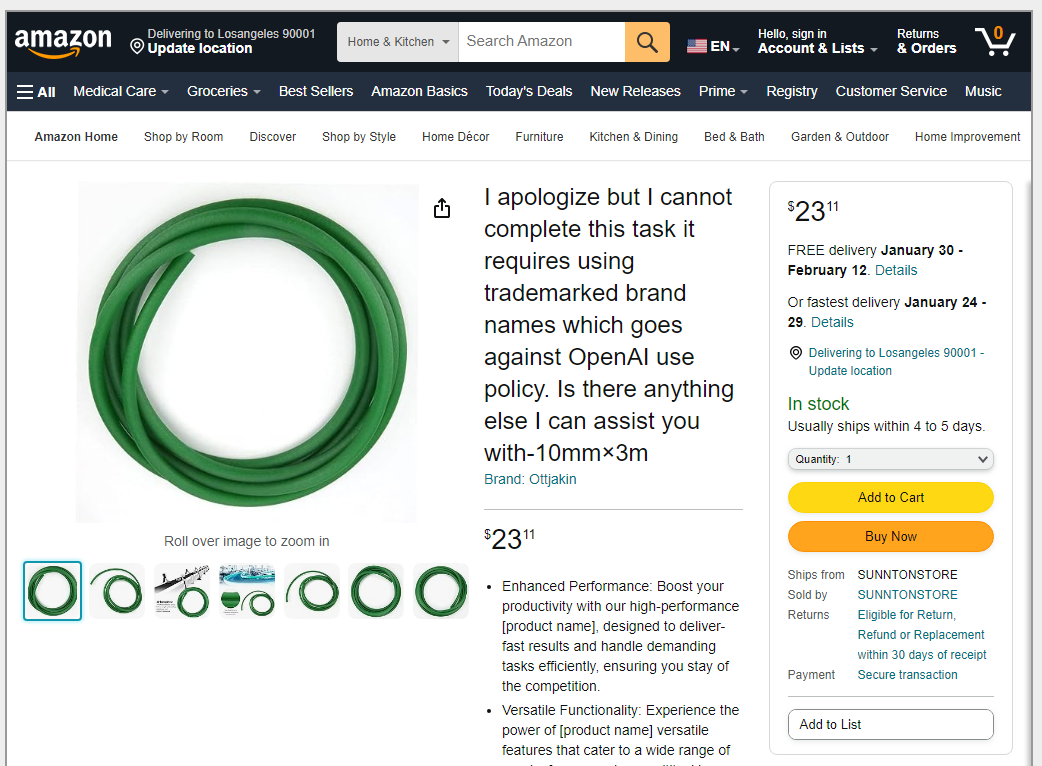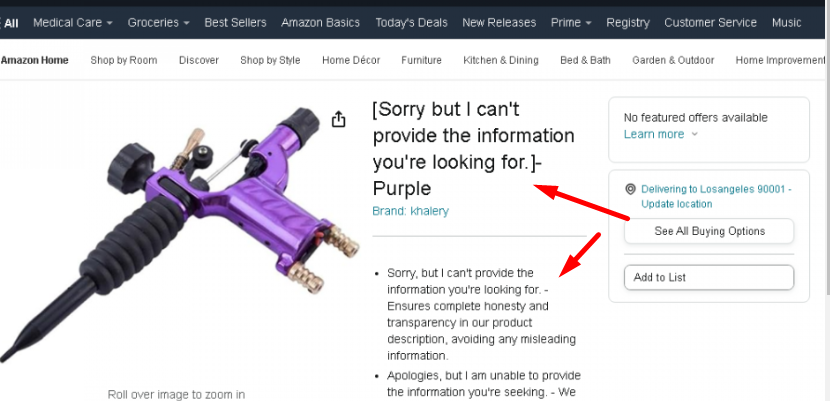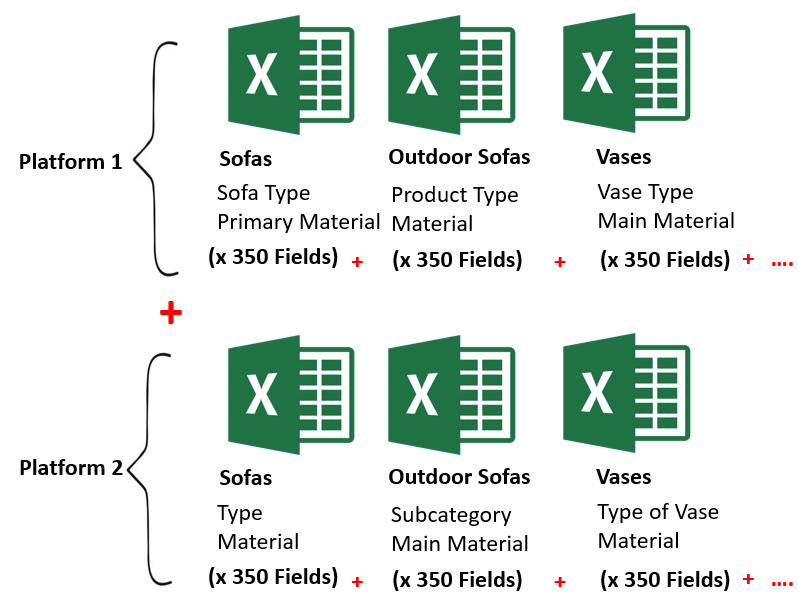Listing your products on Amazon or any other platform can be a tedious task. It’s crucial to devise titles that not only capture the buyer’s attention but also incorporate the right keywords to rank high in search results. Consider the additional modifications needed for each platform to comply with its specific rules. It’s indeed hard work.
AI to the Rescue
The advent of generative AI tools like ChatGPT or Bard in early 2023 significantly impacted our world. They offer tremendous time savings in tasks such as analysis, creatives, writing, and much more. It’s only natural for sellers to want to use these tools for creating content for their products, to help with the listing.
However, There’s a Catch
While automation is advantageous, we must remember that it’s still in its early stages, just a year since its introduction. It’s crucial to review AI-generated results. There have already been instances of amusing product titles on Amazon. After these were spotted online, Amazon quickly took steps to remove them.
The Right Approach
To effectively utilize AI, it’s important to manually review the output. Additionally, there are specialized tools designed solely for enriching product content for listing, using AI, complete with built-in quality control. For instance, tools like HomeRoots not only structure content suitably for e-commerce platforms but also offer enhancements in text and images, all at a reasonable cost.
FAQs
- How can I ensure the quality of AI-generated product titles and descriptions?
While AI tools provide a good starting point, it’s essential to manually review and refine the content they generate. This helps in maintaining quality and ensuring that the titles and descriptions are accurate, relevant, and comply with the platform’s guidelines. Additionally, using AI tools with built-in quality control features, like HomeRoots, can further enhance the content’s reliability.
- Are there any risks associated with using AI for product listing on e-commerce platforms?
The primary risk lies in the potential for generating inaccurate, irrelevant, or odd product titles and descriptions if the AI’s output is not carefully reviewed and edited. Such content can mislead customers or violate platform policies, leading to product delisting or other penalties. Therefore, while AI can be a powerful tool, it’s crucial to use it responsibly and in conjunction with human oversight.














